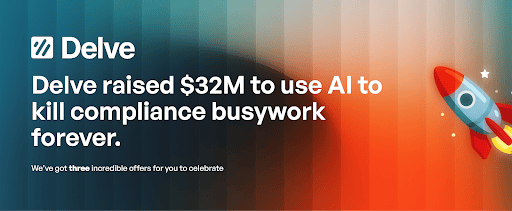- PhD Level
- Posts
- Drug Deletes PTSD! 😱💊
Drug Deletes PTSD! 😱💊
Daily news that is actually intellectually stimulating.
Time to change compliance forever.
We’re thrilled to announce our $32M Series A at a $300M valuation, led by Insight Partners!
Delve is shaping the future of GRC with an AI-native approach that cuts busywork and saves teams hundreds of hours. Startups like Lovable, Bland, and Browser trust our AI to get compliant—fast.
To celebrate, we’re giving back with 3 limited-time offers:
$15,000 referral bonus if you refer a founding engineer we hire
$2,000 off compliance setup for new customers – claim here
A custom Delve doormat for anyone who reposts + comments on our LinkedIn post (while supplies last!)
Thank you for your support—this is just the beginning.
👉️ Get started with Delve
🔬 Astrocyte‑Targeted Drug Shows Promise in Erasing PTSD’s “Stuck” Fear Memories

Researchers from the Institute for Basic Science (South Korea) combined brain‑imaging studies of more than 370 people, post‑mortem tissue analysis and PTSD‑like mouse experiments. They discovered the followings.
People with ongoing PTSD had unusually high levels of the calming neurotransmitter GABA in the medial prefrontal cortex—but the surplus came from support cells called astrocytes, not neurons.
The excess GABA shut down neural activity needed to extinguish (forget) traumatic memories and was tied to reduced blood flow and worse symptoms.
In mice, the team blocked the enzyme monoamine oxidase‑B (MAO‑B)—the source of astrocytic GABA—using a selective, brain‑penetrant inhibitor called KDS2010. One course of the drug normalized GABA levels, restored prefrontal blood flow and allowed the animals to relearn that previously frightening cues were now safe.
KDS2010 has already cleared Phase 1 safety trials in healthy volunteers and is moving into Phase 2 trials for PTSD.
Why it matters:
Current PTSD medications mostly tweak serotonin and help only about a third of patients. By pinpointing a previously overlooked astrocyte‑driven mechanism, this study opens an entirely new treatment avenue—one that aims to switch off the biochemical brake that prevents traumatic memories from fading, rather than just dampening anxiety after those memories surface. If the human trials succeed, KDS2010 could become the first drug to directly restore the brain’s natural fear‑extinction circuitry.
Meet your new assistant (who happens to be AI).
Meet Skej — your new scheduling assistant. Whether it’s a coffee intro, a client check-in, or a last-minute reschedule, Skej is on it. Just CC Skej on your emails, and it takes care of everything: checking calendars, suggesting times, and sending out invites.
Some affiliate links we endorse:
Stay curious,
Anthony Ao
The PhDLevel Team
☕️🐻 Powered by caffeine & curiosity


